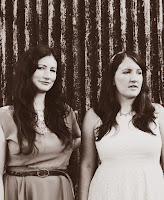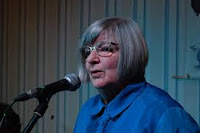Last Tuesday, Jamie Caldwell – Unite Community
Co-ordinator for Scotland – penned a piece in the ‘Voices from Scotland’
section of the Morning
Star arguing the importance of arts, music and culture in bringing people
to politics and inspiring them to join the movement for change.
It is a timely
reminder of the importance of the labour movement’s involvement in the arts and
cultural scene – an involvement that goes back at least as far as the Rose
Schneiderman quote from 1911/2 - "The worker must
have bread, but she must have roses, too." It was a prominent part of
socialist and labour movement work in thirties and forties Glasgow with the
Unity Theatre, Left Book Club groups and the Trades Council’s Film Society.
Similar organisations existed in other cities.
In more contemporary times the TU movement
was key to the formation of
Glasgow’s MayFest, - as were left theatre groups such as Dave
MacLennan’s Wildcat - and it is
good to see increasing arts and musical input more recently around the
International Workers’ Day celebrations. Glasgow’s own Friends of MayDay
programme is one of these developments.
The role of Trades Councils can be crucial
in the success of this co-ordination, and it is good to see a recent increase
in such activities by Trades Union Councils (the new name for Trades Councils)
in and around Glasgow.
 |
| Jane McAlevey |
Glasgow Trades Council itself starts the
list this week with their hosting of the book launch by American union
organizer and author, Jane McAlevey. Entitled No Shortcuts, Organising for Power, it’s on tonight at the Lighthouse and
while it has been sold out, there might be some returns available via the FB
page.
Jamie’s article mentions the Ken Loach film
I, Daniel Blake, and the work of
Unite and the People’s Assembly in promoting it. One of these screenings is
being hosted in Clydebank Town Hall, by Clydebank Trades Council with support
from the Morning Star and a multitude of TUs, on Thursday this week at 7.00pm. Tickets
here.
 Clydebank TC are also prominent in a mini
tour of the play Dare Devil Rides to
Jarama. A play about motorcycling and the Spanish Civil War, it is
produced by Townsend Productions – who gave you The Ragged-Trousered Philanthropist and the Shrewsbury pickets play
United We Stand. It is also playing
Clydebank Town Hall (on 6 March), tickets
here. If you can’t make this showing, there is also one organised by South
Lanarkshire TC in the Blantyre Miners Welfare two days previously (4 Mar).
Tickets from UNISON South Lanarkshire 01698 454690 or from the Blantyre Miners
Welfare itself.
Clydebank TC are also prominent in a mini
tour of the play Dare Devil Rides to
Jarama. A play about motorcycling and the Spanish Civil War, it is
produced by Townsend Productions – who gave you The Ragged-Trousered Philanthropist and the Shrewsbury pickets play
United We Stand. It is also playing
Clydebank Town Hall (on 6 March), tickets
here. If you can’t make this showing, there is also one organised by South
Lanarkshire TC in the Blantyre Miners Welfare two days previously (4 Mar).
Tickets from UNISON South Lanarkshire 01698 454690 or from the Blantyre Miners
Welfare itself.
30 years ago elsewhere in South Lanarkshire
(in Uddingston actually) workers at the Caterpillar factory occupied their
workplace to prevent it being closed. The occupation lasted 103 days. Our
friends at FairPley – other valuable contributors to the increase in cultural
activity on the left – have commissioned two, one-act plays from Anne Hogg on
the aftermath of the occupation. Out of
the Bad and Butterfly are
premiering at Motherwell Civic Theatre on February 25. Tickets from Culture NL here..
Not a bad contribution to Jamie’s important
call for the use of cultural events in socialist and labour movement
organizing. I have no doubt that there are other Trades Union Council’s across
Scotland who are organising similar events. If so, it would be good to support
them and to promote them using social contacts, both digital and otherwise. And
if they are not – what about getting them to do so?
As a wee add-on, while I was in London on a
break, the Morning Star published my final round-up
review of Celtic
Connections. Concentrating on the CC theme of Women of Song it can be found here. And while we’re on the topic of the
Star and Arts/Music coverage, there’s a nice interview by Mike Quille with a
former star of Celtic Connections,
Chris Wood, in the weekend’s
edition. He is a great example of how contemporary folk music is being
created right across these islands.
 |
| Shirley Collins, pic Eva Vermandel |



















.jpg)






.jpg)
.jpg)

.jpg)
